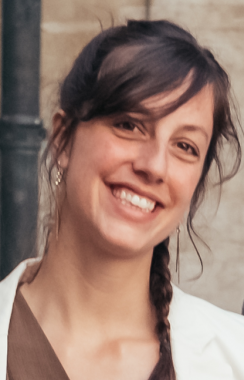Home / Camille Heylen
Camille Heylen
 |
Camille HeylenSchool: Graduate School of Engineering Department: Civil and Environmental Engineering Research Interests: Water Science & Systems, Public Health, Environmental Engineering |
TIE Affiliation
Environmental Research Fellowship
Research
Globally, an estimated 1.2 billion people depend on microbiologically contaminated sources of water1. Household Water Treatment methods practices (including filters) have been shown to improve water quality and reduce diarrheal disease among users2,3. While locally-manufactured ceramic filters remove the bacteria E.coli4,5, it is unknown if these filters remove V. cholerae (smaller than E. coli) and hence reduce disease transmission in cholera outbreaks. Additionally, more than 35 factories in 18 countries currently produce filters with their own production methods and little is understood about the impact of manufacturing variable on V.cholerae removal6. The goal of this project is to test ceramic filters from different countries and to assess their efficacy at removing V. cholerae. These data are particularly needed in cholera contexts such as Yemen where ceramic filters are culturally acceptable while chlorination (a proven efficient method) is not. Our findings will help responders in emergency contexts to define the best way to reduce V.cholerae transmission and recommend which filters to choose in the field.
Experience
Camille is a PhD candidate at the Graduate School of Engineering in the Civil and Environmental Engineering department. She expects to complete her studies in May 2023. Prior to Tufts, Camille earned her M.S. in Technology for Integrated Water Management at Ghent University in Belgium, her M.S. in Environmental Engineering at Universite catholique de Louvain, Belgium, and her B.S. in Agricultural and Environmental Engineering at Universite catholique de Louvain, Belgium. Camille has worked as a Research Assistant in Environmental Health at Tufts University, a Project Leader (soil and groundwater pollution consultancy) at RECOsol in Belgium, and a Volunteer (environmental engineer) at Louvain Coopération in Cambodia. She has also worked as a Volunteer (environmental engineer) at IDAY-International in West Africa and as an Administrative Assistant at Hydro R&D in Louvain-la-Neuve, Belgium.
Current Studies and Future Goals
When asked what she found most meaningful about her field of study, Camille responded with the following: “My field of study focus on water quality management and more specifically on Water, Sanitation and Hygiene (WASH) in low-income countries and emergency contexts, and its huge impacts on human health. Water has always been essential for our societies. Yet, huge pressures (e.g. contamination, pollution, waste, etc.) are, as of today, still exerted on this resource and cause the death of millions of people who do not have access to basic drinking water source or proper sanitation. WASH is linked to poverty and is also a pathway to gender equality and women empowerment.”
When asked what interested her in becoming a TIE Fellow, Camille responded with the following: “I am interested in this TIE program because it promotes sustainable future, notably for low-income and emergency contexts populations. Moreover, it enhances collaboration between departments, which helps promoting interdisciplinary work, as well as between fellows to create a dynamic of learning and self-development.”
Camille does not have any plans for after Tufts yet. However, research really interests her when it is applied to the real world and focuses on people’s needs.
Fun Facts!
When not doing school work, Camille used to do a lot of “DIY activities” (e.g. sewing, making cheese or beer in her basement, building furniture, etc.). In Boston she is room- and material-limited but she also has passionate research work, a city (and a country) to discover and now a family to focus on.
Favorite food/drink: French (well, actually, Belgian!) fries and beer
Favorite song/artist: Gael Faye
Favorite thing you've seen: Angkor in Siem Reap, Cambodia
References
(1) Onda, K.; LoBuglio, J.; Bartram, J. Global Access to Safe Water: Accounting for Water Quality and the Resulting Impact on MDG Progress. Int. J. Environ. Res. Public. Health 2012, 9 (3), 880–894. https://doi.org/10.3390/ijerph9030880.
(2) Fewtrell, L.; Kaufmann, R. B.; Kay, D.; Enanoria, W.; Haller, L.; Colford, J. M. Water, Sanitation, and Hygiene Interventions to Reduce Diarrhoea in Less Developed Countries: A Systematic Review and Meta-Analysis. Lancet Infect. Dis. 2005, 5 (1), 42–52. https://doi.org/10.1016/S1473-3099(04)01253-8.
(3) Clasen, T. F.; Alexander, K. T.; Sinclair, D.; Boisson, S.; Peletz, R.; Chang, H. H.; Majorin, F.; Cairncross, S. Interventions to Improve Water Quality for Preventing Diarrhoea. Cochrane Database Syst. Rev. 2015. https://doi.org/10.1002/14651858.CD004794.pub3.
(4) WHO. Evaluating Household Water Treatment Options: Health-Based Targets and Microbiological Performance Specifications. World Health Organization 2011.
(5) Sobsey, M. D.; Stauber, C. E.; Casanova, L. M.; Brown, J. M.; Elliott, M. A. Point of Use Household Drinking Water Filtration: A Practical, Effective Solution for Providing Sustained Access to Safe Drinking Water in the Developing World. Environ. Sci. Technol. 2008, 42 (12), 4261–4267. https://doi.org/10.1021/es702746n.
(6) Rayner, J.; Skinner, B.; Lantagne, D. Current Practices in Manufacturing Locally-Made Ceramic Pot Filters for Water Treatment in Developing Countries. J. Water Sanit. Hyg. Dev. 2013, 3 (2), 252–261. https://doi.org/10.2166/washdev.2013.178.